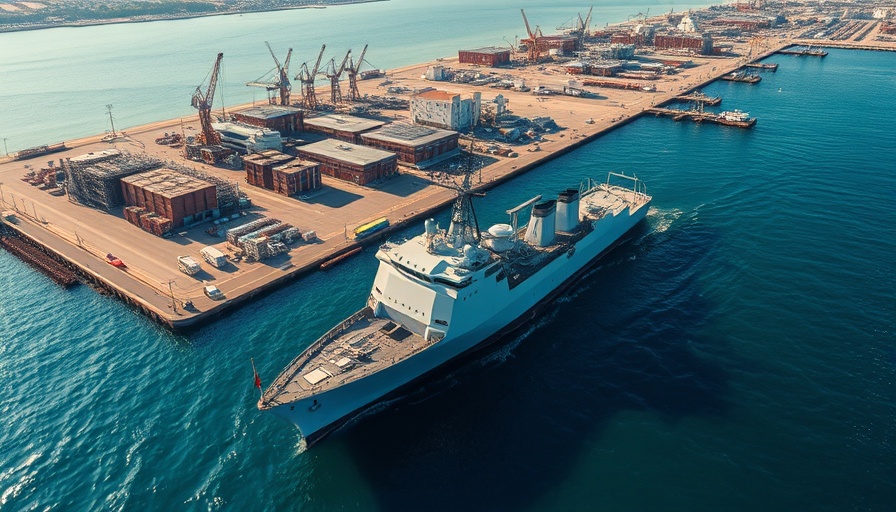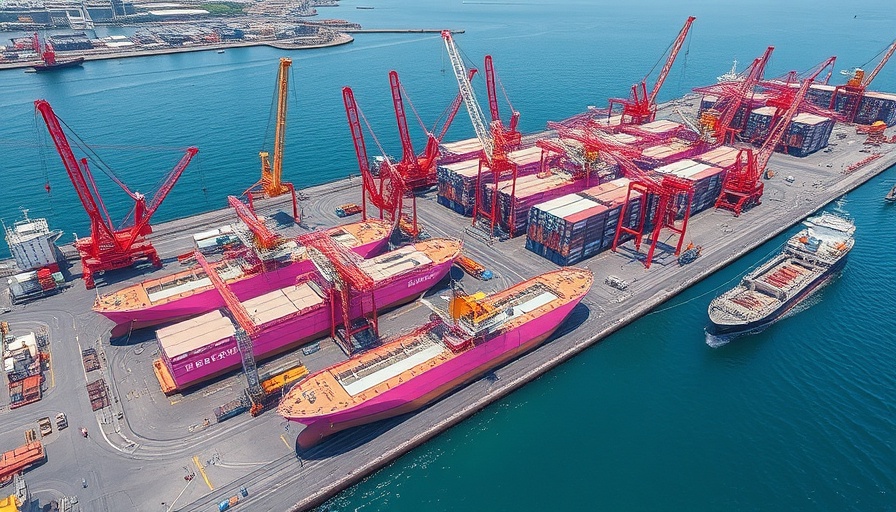
Understanding the Stakes for the U.S. Navy's SM-6 Interceptors
The U.S. Navy is facing a pivotal moment as it seeks congressional reconciliation for funding the SM-6 interceptor production. This initiative could mean the difference between keeping up with defense innovations and risking a vital production shutdown. The SM-6, an advanced missile system designed for air defense, enhances naval capabilities significantly, which is especially crucial amid growing global tensions. But, with the current legislative climate, this bet on reconciliation places the Navy in a precarious position.
The Importance of the SM-6 Interceptor
The SM-6 interceptor has revolutionized naval warfare. Its ability to engage aerial threats at extended ranges means that the Navy can protect its assets more effectively than ever before. As tension escalates globally, particularly in the Pacific region, having such reliable defense systems is not just advantageous but necessary. The potential shutdown of SM-6 production due to a failed reconciliation would hinder the Navy's readiness and technological edge over adversaries.
Past Production Challenges and Reconciliations
This is not the first time the Navy has faced production challenges due to legislative hurdles. In the past, military programs have encountered shutdowns that affected readiness and morale among service members. The Navy's reliance on Congress for funding complex defense programs can lead to unpredictable outcomes. The hope now rests on policymakers to prioritize national security needs over political divisions.
Possible Outcomes of Legislative Action
If the reconciliation effort succeeds, it could ensure a smooth production schedule and bolster overall military capabilities. Additionally, it may also pave the way for future military projects, offering much-needed stability for defense contractors and shipyard workers alike, who depend on consistent projects for employment and economic growth. Conversely, failure in the political arena could lead to delays in acquiring advanced technology and negatively impact military preparedness.
The Broader Impact on Defense Contracting
The ripple effects of funding disputes extend beyond just the Navy. Defense contracting is intricately linked with the national economy, especially for states with high military spending. Uncertainty can stifle innovation and affect the workforce. The potential loss of jobs at shipyards and contractor facilities reverberates through local economies. Advocates argue that strong defense spending not only secures national interests but also supports local communities economically.
A Call to Action for Stakeholders
The situation underscores the importance of stakeholder engagement. It is imperative that defense contractors, military personnel, the local workforce, and citizens advocate for robust defense funding to prevent production halts and ensure the Navy's readiness. Engaging with policymakers and participating in discussions can drive home the point that national security and local economic stability go hand in hand.
Addressing these issues isn't just about military readiness; it also reflects a collective duty to support those who protect our interests. By promoting awareness and understanding of these crucial developments, stakeholders can play a significant role in shaping effective resolutions that ultimately benefit everyone.
 Add Row
Add Row  Add
Add 




 Add Row
Add Row  Add
Add 

Write A Comment